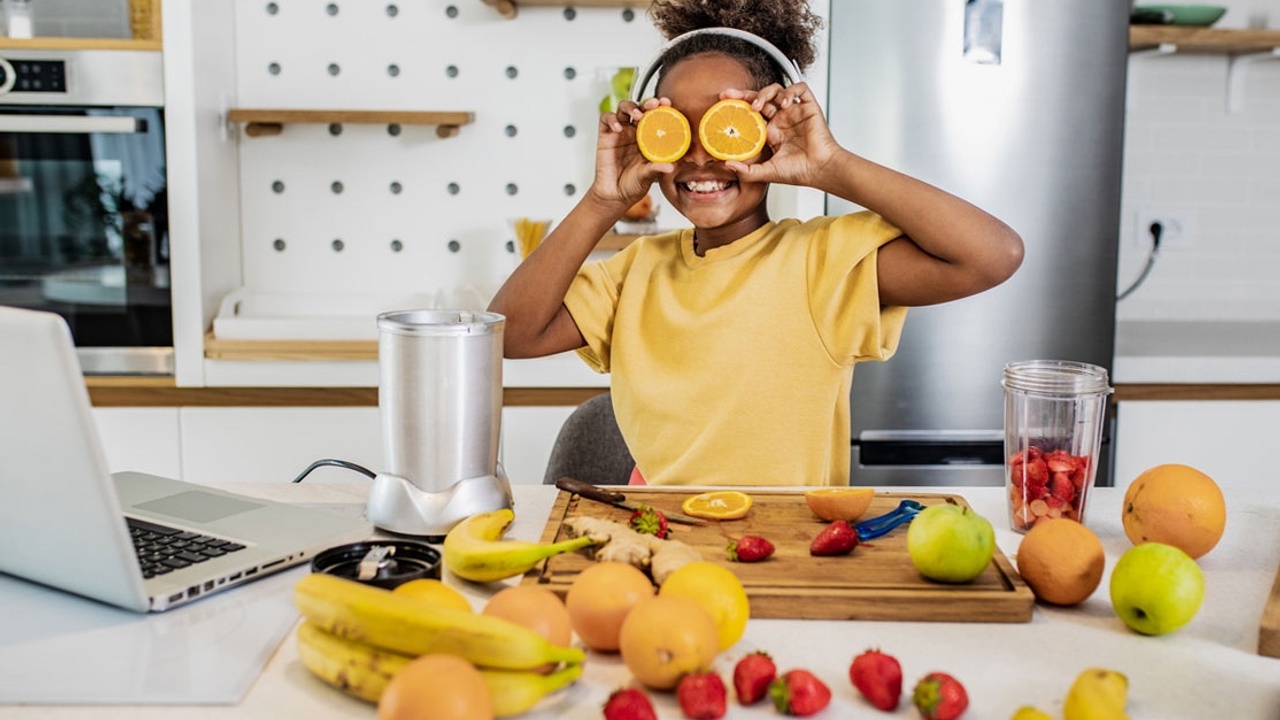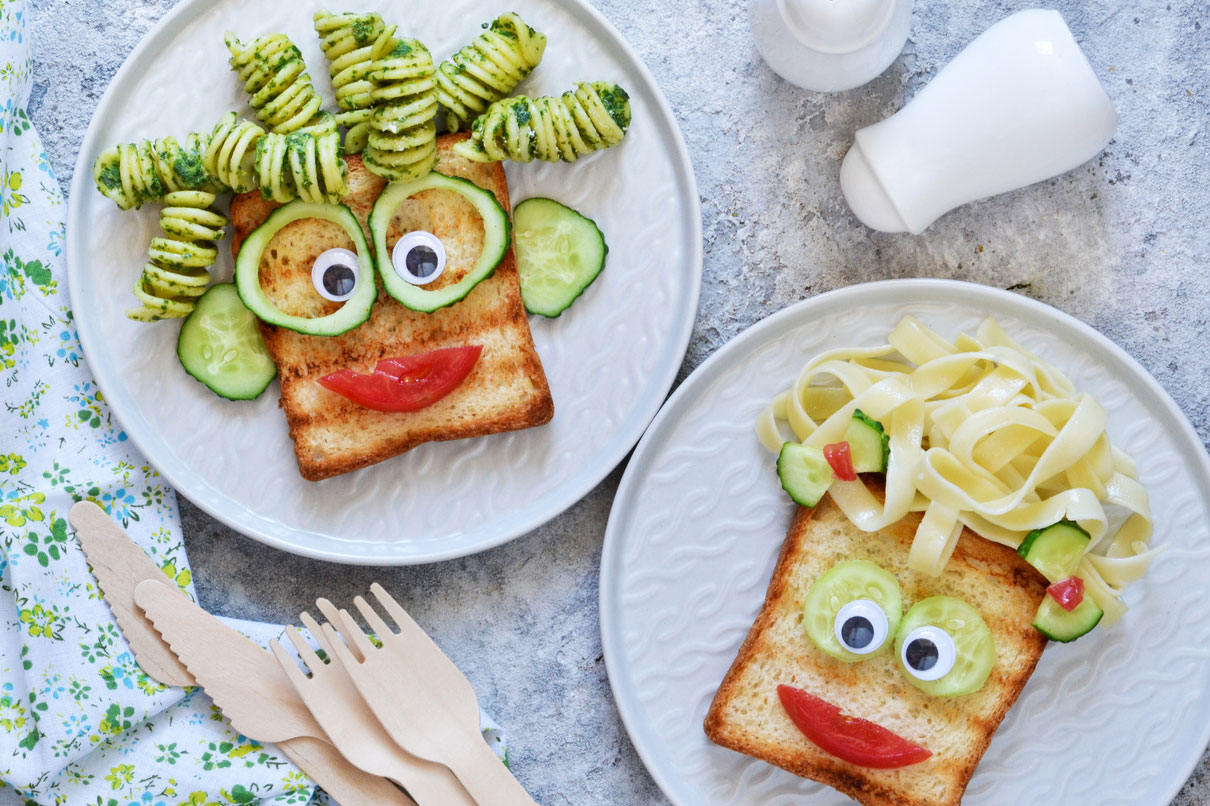
Feeding Therapy for Picky Eaters
I see kids with picky eating in my practice every day. Kids demonstrate food selectivity for a variety of reasons. Kids are not just "Picky" because they are being difficult or stubborn. Picky Eating can result from factors like a history of negative oral experiences, sensory-processing differences, or mouth-muscle (oral-motor) issues.
It's important to work with a Feeding Therapist to identify the underlying causes of food refusal/aversion and develop a tailored plan depending upon the child's specific needs. Having said that, in this blog I describe a "typical" approach to feeding therapy for kids with food selectivity or refusal; however, it's important to remember that there is not a one-size-fits-all approach to feeding therapy.
Depending upon their developmental level, kids aged 3 and up can benefit from direct therapy to expand their food repertoire and learn to accept new foods. During sessions we learn about new foods through food play and working through various sensory steps toward food acceptance:
-
Looking
-
Touching
-
Smelling
-
Kissing
-
Licking
-
Biting
-
Spitting out
-
Chewing
-
Swallowing new foods!
In therapy I call myself a Feeding Teacher and the kids are Food Explorers, Food Scientists, or Artists, or Chefs! Before I meet them, I ask parents to let their child know that I am not going to make them try new foods…I’m going to help them learn about and explore new foods in a fun way. My approach to feeding therapy is play-based, fun, and responsive. I use a picture-based food acceptance game showing the stages of food acceptance along with charts so kids can monitor and take pride in their progress. Behavioural modification strategies are woven into my therapy approach. Sessions can involve puppets, making silly food faces, and/or interacting with my talking toy hamster Buddy Junior (named by one of my clients).

But here’s the challenge – kids are often very willing to explore or taste new foods with me during therapy sessions; however, they are not willing to repeat the same behaviours outside of therapy when they are with their parents. This can be very frustrating and discouraging to caregivers. They are very excited to witness their child accepting new foods in therapy, but when they try with their child outside of therapy, they are met with resistance and refusal. Even if a child will not participate in direct practice outside of therapy, parents can still introduce home-based strategies at every mealtime to help reduce picky eating.
This is very normal. Kids (mine included) will often work well and comply with someone that is not their parent. My son used to eat bowls of broccoli at childcare but would not touch it at home. My daughter would happily work on her printing with her teacher but would resist my attempts to practice at home.
Here are the 5-Steps in Feeding Therapy:
Step 1: Child tastes and explores new foods during therapy sessions with Nicola.
Step 2: Child tastes and explores food in therapy with parent sitting in on the session.
Step 3: Child tastes and explores new foods with parent actively participating during therapy with Nicola.
Step 4: Child tastes and explores new foods with parent during structured practice time (10 minutes per day) outside of therapy. Child shares their feeding practice homework with Nicola in therapy.
Step 5: Child tastes and explores new foods with parent during mealtimes.

At first, it works well for the child to do some therapy sessions with just me. Often there is a history of parents well-meaningly pressuring their child to “try” new foods. As I’ve mentioned in my previous blogs, research has demonstrated that pressuring kids to try foods and “take a bite” doesn’t work…it actually reduces their willingness to accept new foods. Kids may have memories of being pushed, coaxed, or bribed to eat new foods. Parents may have memories of food refusal and very stressful mealtimes. This can cause a breakdown in the parent-child feeding relationship. Sometimes taking a step back and letting the child engage in therapy with a new person allows a new experience with food acceptance. Once the child is familiar with the therapy routine and relaxes and learns that I won’t be forcing them to “try” new foods, parents can begin to join the sessions using the same fun, child-directed strategies. After a while, I gradually step back and coach parents while they take the lead and engage their child in fun interactions like smelling, kissing, licking, and putting bite-marks on foods.

To help with carryover of feeding goals outside of therapy, I provide kids with daily Food Homework. They are given a printable checklist where they can check off their interactions with new foods (e.g., “I licked oranges”, “I kissed a piece of cheese”, “I put bite marks on chicken”). I tell kids that Feeding Homework is their responsibility, not their parents.
The parents’ job is to offer new foods for exploration along with their child’s printable Food Homework checklist. The child’s responsibility is to explore each food and check off which sensory step they are able to accomplish.
Kids are then expected to show me their progress at our next feeding therapy session. I find that kids are often very proud to tell me about their food learning and interactions.

Lastly, I ask parents to avoid using the term “Picky Eater”. Their child has likely heard themselves described as a picky eater to friends and family and unfortunately this becomes part of how they view themself. Kids might think that they are unable to accept new foods because they are a “Picky Eater”. I encourage parents to change the dialogue and start catching their child during positive food interactions. “I like the way you touched that carrot today…how did it feel?” “That chicken looks crunchy…I like the way you licked it.” “You are a great Food Explorer.” Parents can start using language like Food Explorer during new food interactions and Food Scientist or Chef during cooking activities or Food Artist during food play time. In time, kids will begin to view themselves in a different light. They will evolve from the “Picky Eater” to the “Food Explorer, Scientist, and Artist” and in time will develop confidence and positivity toward new foods.


